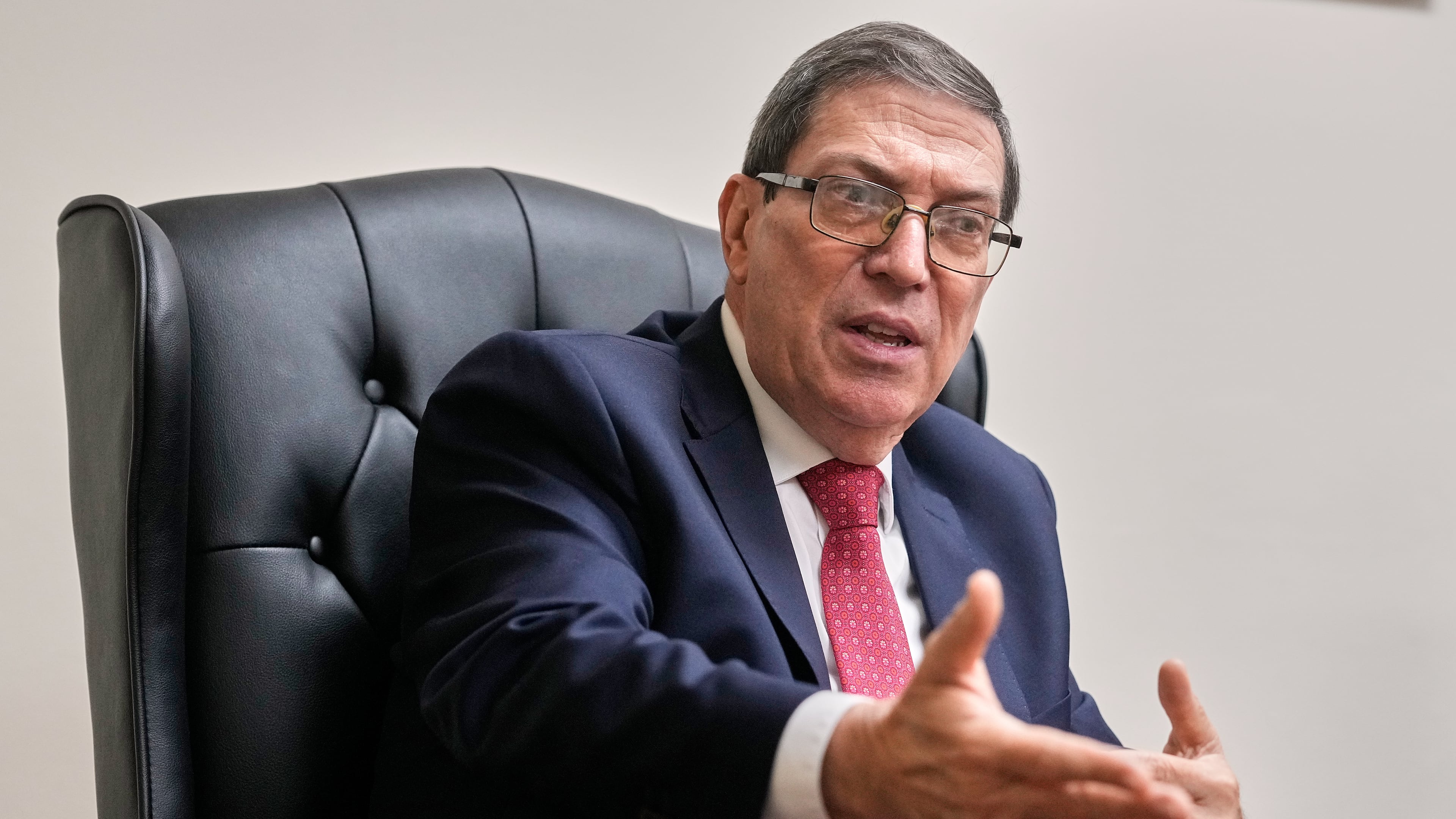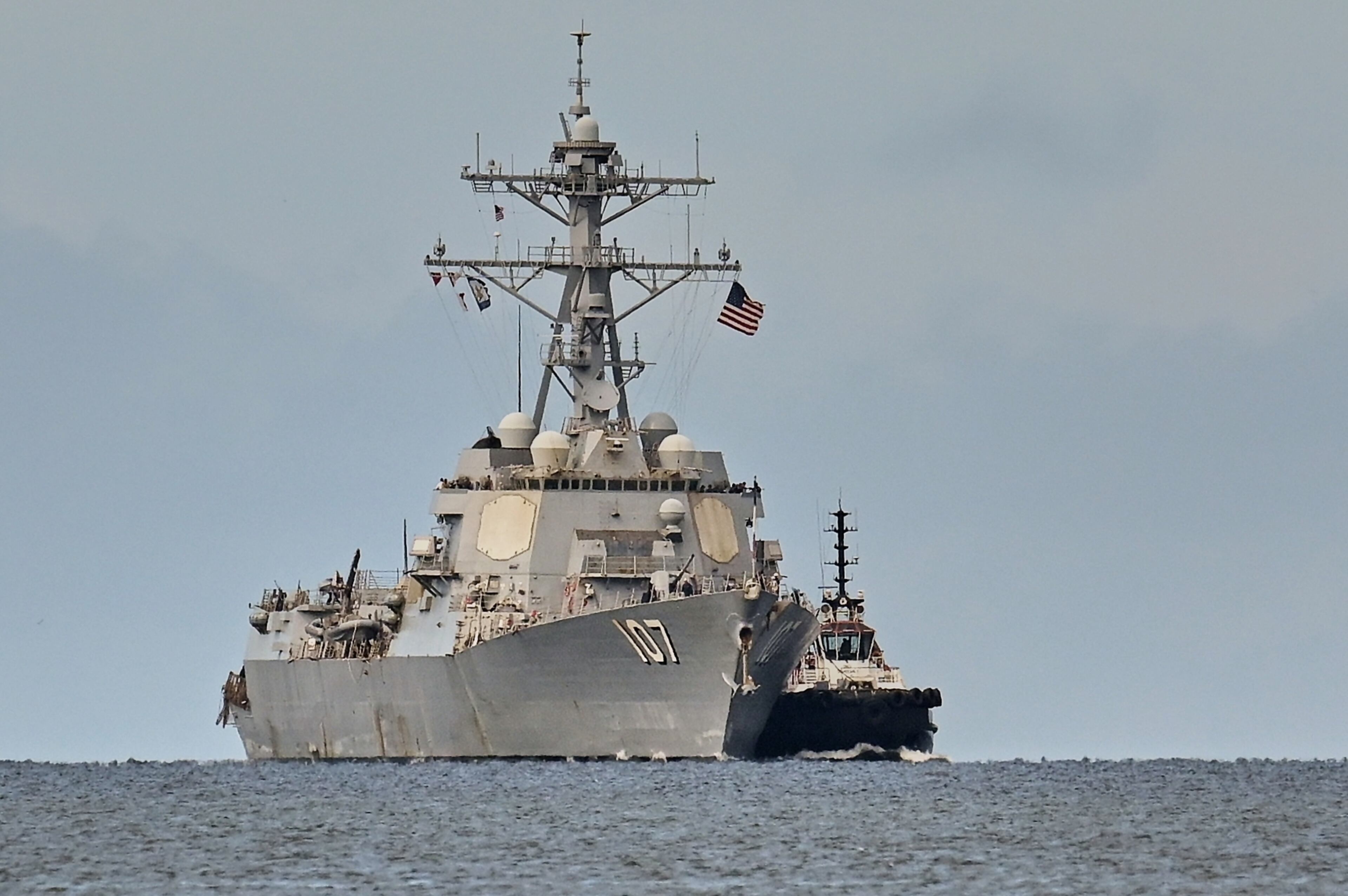UN General Assembly condemns US embargo on Cuba for 33rd year, but US garners more support

UNITED NATION (AP) — The U.N. General Assembly voted overwhelmingly Wednesday to condemn the U.S. economic embargo of Cuba for a 33rd year. Yet the vote — as Hurricane Melissa tore through the island nation — softened Washington's isolation on a longstanding issue in the Caribbean while new friction grows around its military buildup there.
The vote in the 193-member world body was 165-7, with 12 abstentions. Last year, it was 187-2, with “no" votes from the U.S. and Israel and one abstention. This year, Argentina, Ukraine and Hungary were among countries that also opposed the measure.
In an interview with The Associated Press on Monday, Cuban Foreign Minister Bruno Rodríguez said the U.S. mounted a pressure campaign to influence the vote.
Rodríguez said his government had heard from other countries, mainly in Europe, that the U.S. State Department was encouraging them to vote against the resolution. The State Department did not respond to requests for comment.
Before the vote, U.S. ambassador to the U.N., Mike Waltz described the annual exercise as “political theater” by Cuba to "cast itself as the victim of aggression while plainly describing itself as “the enemy of the United States.”
“I would suggest that our member states stop appeasing the regime with their votes and instead use this vote to send the world a message,” Waltz said during General Assembly debate Tuesday, adding that the vote also could signal to Cuba not to "blame all of its economic problems on the United States.”
While not legally binding, General Assembly resolutions reflect world opinion, and the vote has given Cuba a yearly opportunity to emphasize that Washington stands apart on the decades-old economic restrictions.
"We cannot underestimate the importance, the impact, of the powerful message year after year by the General Assembly, which is the most democratic, representative body of the international community,” Rodríguez told AP. “It is not binding, but it is powerful.”
Urging countries Wednesday to back the resolution again, Rodríguez said that “doing so would be an act of justice in favor of a peace-loving people that is facing not only the blockade, but with the blockade, another monstrous hurricane.”
The U.S. objects to the description of the economic restrictions as a blockade.
This year's vote happened not only as the hurricane raged but as the Trump administration intensifies its campaign against drug trafficking in the waters off South America.
The nearly two-month initiative and U.S. military buildup have strained ties with allies in the region and opened speculation that the moves are aimed at ousting Venezuelan President Nicolás Maduro. The U.S. has charged him with narcoterrorism, alleging that he conspired to flood the country with cocaine.
Maduro, in turn, has accused the United States of trying to destabilize his country and gain control of its oil reserves.
Cuba, meanwhile, has struggled since 2020 with one of the worst economic and energy crises in its history. Its gross domestic product has shrunk, and residents have endured blackouts, food shortages and inflation. There have been waves of protests, and hundreds of thousands of Cubans have migrated, many to the United States.
Cuban officials have blamed the economic squeeze on COVID-19 shutdowns, stricter U.S. sanctions and other factors. The island's communist government says the country lost over $7.5 billion between March 2024 and February 2025 due to U.S. sanctions — a loss 49% bigger than during the same period a year earlier.
The embargo was imposed in 1960 after Fidel Castro led a revolution that toppled dictator Fulgencio Batista and nationalized properties belonging to U.S. citizens and corporations.
In July 2016, then-Cuban President Raul Castro and then-U.S. President Barack Obama officially restored relations. That year, the U.S. abstained, for the first time, on the General Assembly resolution calling for an end to the embargo.
Obama’s successor, Donald Trump, in his first term sharply criticized Cuba’s human rights record, and the U.S. again voted against the resolution in 2017 and ever since.
Of Cuba’s nearly 10 million residents, 80% have spent their entire lives under sanctions, which increased significantly during Trump’s first term, continued under his successor, President Joe Biden, and were tightened again after Trump returned to office this year.
___
Associated Press writer Cristiana Mesquita in Havana contributed to this report.

